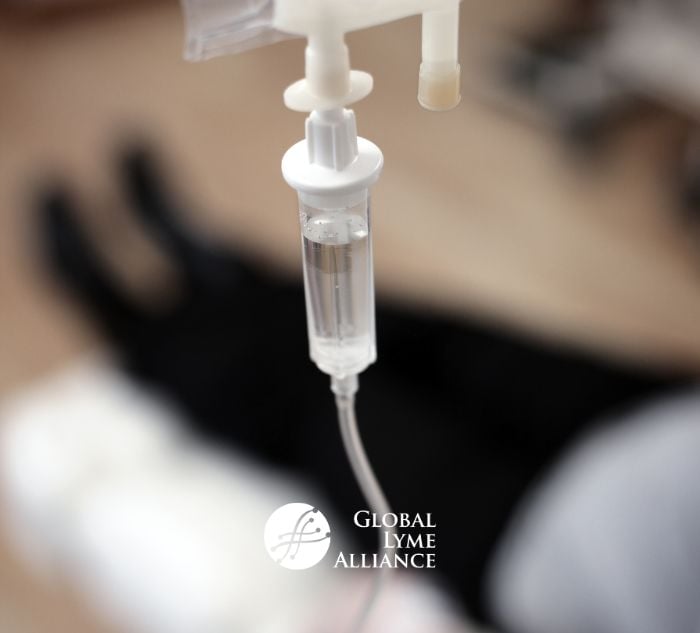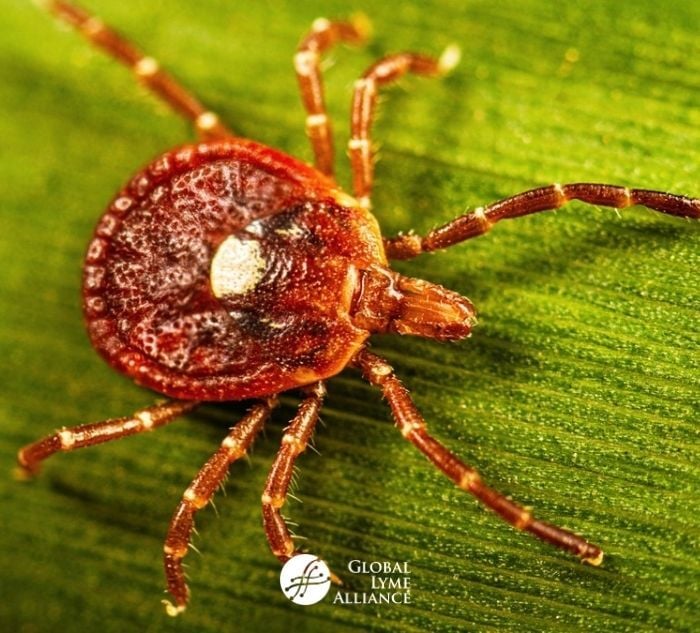
Learn how glutathione can help support Lyme disease symptoms like brain fog and fatigue. From Jennifer Crystal's personal experience, learn its benefits and the importance of consulting a Lyme Literate Medical Doctor for personalizing its application.
Though my Lyme disease, babesiosis, and ehrlichiosis have been in remission for over a decade, I still occasionally experience flare-ups, particularly during times of stress. If I start to get neurologically or physically overwhelmed, my body lets me know with an uptick in symptoms like fatigue, muscle twitches, and brain fog. That last one is the first to appear when I’ve read too much, consumed too much information, or experienced sensory overload.
Usually, the symptom is quick to pass with quiet time and rest, but back when I was in graduate school trying to read books and articles and my peers’ essays all while working on my own writing, the brain fog intensified and persisted. I felt like my head was clogged with thick syrup, and if I could just open a spigot and release it, I’d feel better.
This analogy helped my doctor understand what was actually going on in my overstimulated brain. “Your brain needs to detox,” he said. “It’s like you’re having a Herxheimer reaction just in your head.” He explained that a buildup of toxins, whether dead spirochetes or otherwise, was likely contributing to the pressure and “Lyme brain” I was experiencing. He recommended that I take an antioxidant called glutathione. Glutathione (or its other form L-glutathione, or glutathione reduced) can help combat free radicals and address Herxheimer reactions.
Soon, my head started to feel clearer. I could think straight, I wasn’t searching for words as much, and I could take in more information without getting so neurologically overwhelmed. It felt like the spigot had indeed been opened and at least some of the “syrup” had drained. Over time, when brain fog crept up again, my doctor had me increase my dose of glutathione, which solved the problem.
Before everyone writes to me asking what kind of glutathione I take or what my dosage is, let me remind you that there is no set protocol for treating Lyme disease. What is helpful for one person could be harmful for another. This is because every case happens in the context of complicated factors such as duration of illness, the body’s own immune response, and the presence of co-infections or other co-morbidities. I do not give out my ever-changing protocol because it is highly personalized.
And before you go running out to buy glutathione, it’s critical that you speak with your Lyme Literate Medical Doctor (LLMD) to determine if glutathione is right for you. If it is, your practitioner can advise you on form and dosing. If you are considering asking your doctor about glutathione, here is some helpful information to know about it:
What is Glutathione?
Glutathione is an antioxidant that occurs naturally in the body, found especially in the liver. It plays a crucial role in detoxification.
Oxidative Stress and Lyme Disease
Lyme disease can lead to oxidative stress (an imbalance between free radicals and antioxidants in the body). As a result, your glutathione levels might be depleted. Without adequate glutathione, your body may have trouble fighting infection and inflammation effectively. This can lead to prolonged illness and exacerbated Lyme disease symptoms.
General Benefits of Glutathione
In addition to combatting free radicals in the body, glutathione also supports healing of liver and other inflammation. It can help cells regenerate, which can improve skin conditions like psoriasis, acne, and eczema.[i]
Glutathione’s Role in Lyme Disease Treatment
Beyond general benefits involving detoxification and decreased inflammation, glutathione has specific benefits for Lyme disease patients. As it did for me, it can help combat Herxheimer reactions and brain fog. It also can help with nerve damage. i Perhaps most importantly, glutathion can support the immune system to increasing the body’s defense against the Lyme disease bacteria, Borrelia burgdorferi. Glutathione helps immune cells function optimally and aids with production of cytokines, which regulate the immune response and are necessary for an effective defensive against the Lyme bacteria.[ii]
Glutathione can be administered orally or intravenously. Intravenous glutathione may especially raise levels and reduce oxidative stress. Intravenous glutathione may be combined with high doses of Vitamin C and other nutrients that fight inflammation.
Consulting a Lyme Literate Doctor
As previously noted, it’s imperative that you work with a Lyme Literate Medical Doctor (LLMD) to create a personalized treatment plan. To increase glutathione and improve your body’s ability to detox, your doctor may recommend intravenous glutathione therapy, antioxidant protocols, detox activities, and lifestyle changes including the “Lyme Disease Diet.”
[i] https://lymemexico.com/glutathione-iv-therapy-benefits-lyme-patients/
[ii] https://www.ncbi.nlm.nih.gov/pmc/articles/PMC5877983/
***
The above material is provided for information purposes only. The material (a) is not nor should be considered, or used as a substitute for, medical advice, diagnosis, or treatment, nor (b) does it necessarily represent endorsement by or an official position of Global Lyme Alliance, Inc. or any of its directors, officers, advisors or volunteers. Advice on the testing, treatment or care of an individual patient should be obtained through consultation with a physician who has examined that patient or is familiar with that patient’s medical history.

Jennifer Crystal
Writer
Opinions expressed by contributors are their own. Jennifer Crystal is a writer and educator in Boston. Her work has appeared in local and national publications including Harvard Health Publishing and The Boston Globe. As a GLA columnist for over six years, her work on GLA.org has received mention in publications such as The New Yorker, weatherchannel.com, CQ Researcher, and ProHealth.com. Jennifer is a patient advocate who has dealt with chronic illness, including Lyme and other tick-borne infections. Her memoir, One Tick Stopped the Clock, was published by Legacy Book Press in 2024. Ten percent of proceeds from the book will go to Global Lyme Alliance. Contact her via email below.







-2.jpg)